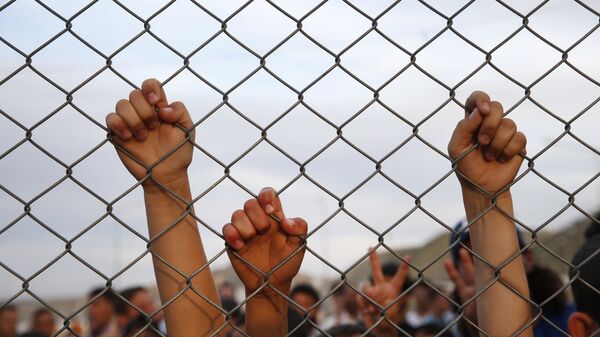Turkey hosts 2.7 Syrian asylum seekers, more than any country in Europe. However, most of them are not able to get a job, medical care or education, according to Human Rights Watch report released on June 20th. In registering as refugees, most experience delays of several months, which leaves them in legal limbo and unable to claim rights or protection.
HRW's report underscores that "protection" includes protection from refoulement, or being sent back to one's country of origin, where their lives or freedom would be threatened. This is, however, happening on a daily basis.
Only 10% of Syrian refugees live in special camps, Stephanie Gee says, while most of them have to struggle to get jobs, a nearly impossible task when one is not officially registered as a refugee.
The lack of legal status also means that asylum seekers are unable to receive health care or send their children to school. Turkey's Minister of Education Nabi Avcı acknowledged "only 325,000 Syrians in Turkey are attending school, out of more than 756,000 school-age refugees in Turkey." Human Rights Watch suspects the actual number of children refugees could be even higher.
While Turkey's refugee legislation allows refugees to apply for legal jobs, it still requires subjects to meet certain residency criteria and is only applicable if they can find an employer willing to sponsor them. These conditions render most of the refugees' quest for work effectively impossible, resulting in poverty and exploitation. Without legal protection, even Syrians who were lucky enough to get jobs have to work for a fraction of the salary paid to Turkish citizens.
"The EU is morally, and indeed legally, obliged to share some of the refugee burden by not sending Syrian refugees back to Turkey without assessing their asylum claims," Stephanie Gee said.
According to Turkish officials, Turkey spends $500 million monthly on hosting Syrian refugees. Under the controversial EU-Turkey deal, the European Union will pay €3 billion to Turkey, €180 million of which have already been disbursed.
Human Rights Watch argues that Turkey cannot currently qualify as "safe third country," a place where refugees could be safely sent from the European countries.
Turkey signed the 1951 Refugee Convention and its 1967 Protocol, but limited its application to European refugees, excluding all others from its protection. A 2013 law established a system of international protection for non-European asylum seekers that brings Turkish refugee law closer to the convention's provisions. A special 2014 legislation provides additional temporary protection for Syrian refugees, but it could be terminated at will by the Council of Ministers. If that happened, beneficiaries would lose the guarantee that they could remain in the country legally.




